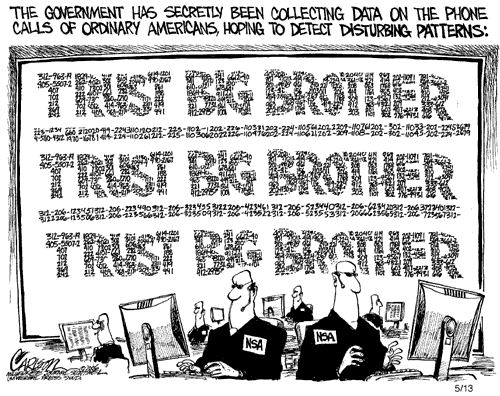|
May 15, 2006
An account of how bloggers in the US are an integral part of the formation of public opinion in the public sphere. There's a market in the US for new voices who are not part of the political elite and the traditional media.
 This account sure doesn't apply here in Australia. This account sure doesn't apply here in Australia.
Bloggers here are still largely seen as amateurs and inferior to the professional journalists in the corporate newspapers. TV reporters and other "mainstream media" types are deeply suspicious of bloggers. The latter's deliberations on public issues are not seen as part of the conversation in the public sphere of liberal democracy.
Why is the US different? One reason is tha there is a biting issue for liberals, which has its roots in a constellation of expanding the powers of the President to fight terrorism, Congress being Republican-controlled, polling showing that a large majority of Americans are willing to give up their civil liberties to prevent another terror attack and a USA Patriot Act that passed with overwhelming support, and the National Security Agency's operations that the Bush-Cheney administration says are essential to preventing another domestic terror attack.
This constellation has a specifiic focus? ,President Bush authorized the National Security Agency (NSA) to spy on Americans without warrants, ignoring the procedures of the Foreign Intelligence Surveillance Act (FISA). First reports indicated that NSA was only monitoring foreign calls, originating either in the USA or abroad, and that no more than 500 calls were being covered at any given time. But later reports have suggested that NSA is "data mining" literally millions of calls---and that it has been given access by the telecommunications companies to "switching" stations through which foreign communications traffic flows.
In sum, this is big-time, Big Brother electronic surveillance that erodes constitutional liberties in the interest of protecting Americans from terrorism. It does so by deploying the instrument of fear-mongering and using "the War" to generate support for everything wanted.

Stuart Carlson
Glenn Greenwald stands firmly on the foundational political views of the US:--that citizens can tolerate all sorts
of political disputes on a range of issues, but we cannot tolerate attacks by the government on the constitutional framework and guaranteed liberties. In his How Would A Patriot Act? Defending American Values From A President Run Amok, makes two arguments about this:
First: "The NSA eavesdropping scandal, at its core, is not an eavesdropping scandal. It is a lawbreaking scandal, and it is unlike anything this country has confronted before," he writes. More importantly, it "is not an isolated act of lawbreaking. It is an outgrowth of an ideology of lawlessness that has been adopted by the Bush administration as its governing doctrine."
Second: This fear-based ideology of lawlessness has no place in America, and must be vigorously opposed by the American people in order to preserve our constitutional order based on separation of powers and the Bill of Rights. This ideology is opposed by conservatives as well as moderates and liberals. It is wholly outside of and inimical to the American political tradition.
What lies behind this is the view that the president has absolute, unchecked power in order to defend the country against terrorism. It asserts that neither Congress nor the courts can place any limits on the president's decisions is to say that the president is above the law.
The Bush administration has turned away from the tradition of Jefferson and other founders of the Republic to Enlightenment thinkers like John Locke, which emphasizes checks and balances, and promotes liberty and human rights in theory if not always in practice. This civic republican tradition has been replaced with a justification of arbitrary power based on fear: a position best articulated by the English philosopher Thomas Hobbes and given the name Leviathen.
|

Abundant technologies offer the possibility to publish books without having to go through a formal publisher/distributor. We published Patterns of Liberty in that manner. That is the third book South Sea Republic has published in that manner.
I don't know why bloggers/self-publishing pundinistas/citizen commenteriat haven't had much of an impact on mainstream media. When I was in Au in september last year we filmed a political talkshow pilot which had prominent bloggers as the talking heads.
Given the American experience I thought, at the least, that the ABC/SBS would jump at it as a way of increasing the public franchise. But no. Not a peep.
I had low expectations of it being picked up, but I thought there would be some interest.
It also surprises me that the Australian citizen commenteriat are limited in the public debate as it has members of the traditional influential class; like Quiggin, Gruen, Leigh etc.
Traditionally the talking head "expert on everything" was either a political hack, an academic of a media personality. Quiggin for instance straddles both publishing and academia.
With blogger added to his credentials he is the top of the Au game and the most influential on the political process and media.
Others that don't have the traditional background of being seen as legitimate are still screwed in Au I think. It will change, but Australian innovation in technology is far too often behind the US, rather than infront of it.